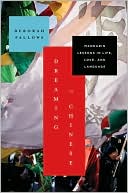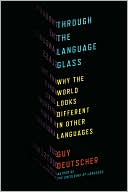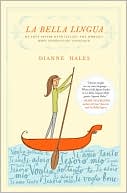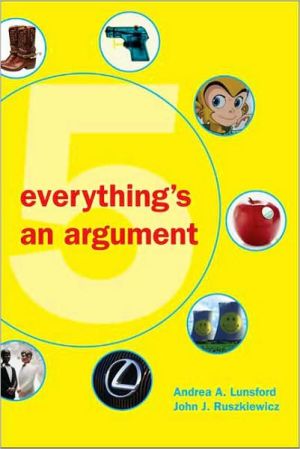Bastard Tongues: A Trail-Blazing Linguist Finds Clues to Our Common Humanity in the World's Lowliest Languages
Why Do Isolated Creole Languages Tend to Have Similar Grammatical Structures?\ Bastard Tongues is an exciting, firsthand story of scientific discovery in an area of research close to the heart of what it means to be human—what language is, how it works, and how it passes from generation to generation, even where historical accidents have made normal transmission almost impossible. The story focuses on languages so low in the pecking order that many people don't regard them as languages at...
Search in google:
Why Do Isolated Creole Languages Tend to Have Similar Grammatical Structures? Bastard Tongues is an exciting, firsthand story of scientific discovery in an area of research close to the heart of what it means to be human—what language is, how it works, and how it passes from generation to generation, even where historical accidents have made normal transmission almost impossible. The story focuses on languages so low in the pecking order that many people don't regard them as languages at all—Creole languages spoken by descendants of slaves and indentured laborers in plantation colonies all over the world. The story is told by Derek Bickerton, who has spent more than thirty years researching these languages on four continents and developing a controversial theory that explains why they are so similar to one another. A published novelist, Bickerton (once described as "part scholar, part swashbuckling man of action") does not present his findings in the usual dry academic manner. Instead, you become a companion on his journey of discovery. You learn things as he learned them, share his disappointments and triumphs, explore the exotic locales where he worked, and meet the colorful characters he encountered along the way. The result is a unique blend of memoir, travelogue, history, and linguistics primer, appealing to anyone who has ever wondered how languages grow or what it's like to search the world for new knowledge. The New York Times - Michael Erard One of the field's old lions, [Bickerton] has spent the last four decades studying pidgins and Creoles and writing a few novels on the side. A self-described macho "street linguist" for whom fieldwork is part pub crawl, Bickerton has a penchant for big ideas and a "total lack of respect for the respectable" that, judging from his new memoir, has put him at odds with bureaucrats and colleagues. Bastard Tongues is gossipy, vain and pugilistic—in other words, all the juicy things an academic memoir should be but too rarely is.
\ Bastard Tongues \ A Trail-Blazing Linguist Finds Clues to Our Common Humanity in the World's Lowliest Languages \ \ By Bickerton, Derek Hill and Wang \ Copyright © 2008 \ Bickerton, Derek\ All right reserved.\ \ ISBN: 9780809028177 \ \ Chapter 1\ I waded out of thigh-deep, pellucid water onto a beach of pure yellow sand. Behind, the twin outboards of the motorboat that had brought me churned trails of white foam that dwindled rapidly into the distance. Soon their sound shrank to a murmur, then ceased; the boat vanished in a dazzle of sunlight on the lagoon. I was alone on the island of Ngemelis, in the archipelago of Palau, in the western half of the Pacific Ocean.\ I had landed near the northwestern tip of the island. Back of the beach lay a grove of coconut palms, extending southeastward to a low ridge of jagged limestone covered with impenetrable spiny scrub. Hull down on the horizon lay the larger island of Peleliu, scene of ferocious fighting in World War II, home to deadly sea crocodiles, one of which had recently caught a fisherman and stashed his corpse on an underwater ledge, to dine on later. North and east, the central lagoon of Palau spread its vast expanse of tranquil blues and greens, dotted with tiny islands like giant toadstools.\ I was marooned on a genuine desert island.\ Why on earth would a professor of linguistics have himself marooned on a desert island? Well, that’s a long story.\ It began eleven years earlier, in West Africa. I was teaching English literature at what was then called the University College of Science Education,located in Cape Coast, Ghana. Science education, what exactly did that mean? Teaching science? Or teaching how science should be taught? Or just teaching everything in a scientific way? Nobody knew, but it sure sounded impressive. Once, in a bar at three in the morning, I stumbled on one of our janitors, paralytic drunk, sitting by himself and repeating, over and over, in tones of rapt adoration: “U-ni-ver-sity Coll-ege of Sci-ence Ed-u-cation! U-ni-ver-sity Coll-ege of Sci-ence Ed-u-cation!”\ I wasn’t there out of love of Africa or because I particularly wanted to be a literature teacher. There wasn’t anything I wanted except to travel and have new experiences. I just did the next thing, whatever that was, and when it got boring I moved on to something else. Yet always at the back of my mind was this feeling that one day I’d meet someone in a bar who’d tell me my true purpose in life.\ And believe it or not, this finally happened.\ It was just another steamy, sweaty morning on the coast once called the White Man’s Graveyard. Thirsty from teaching, I dropped into the Staff Bar for a cold one (faculty are called staff in Britain and its ex-colonies). Somebody called me over to a table and introduced me to an unfamiliar face: John Spencer, Professor of Linguistics, University of Leeds, England, just passing through. I sat down and we talked and drank good Ghanaian beer. To all appearances, a morning like any other.\ For some reason I started talking about what it was like teaching English literature to West Africans. The week before we’d been doing George Eliot—I think it was The Mill on the Floss—and we came to the bit where the outraged father drives his daughter and her illegitimate baby out into the snow. Teaching about snow in the tropics is bad enough; likewise explaining how any father who was not an unnatural monster could banish his own child and grandchild just because someone hadn’t spoken some words in some church. But then it turned out the whole class thought she was carrying the baby on her back. Naturally, since that’s how Ghanaian mothers do it. “No,” I said, “in her arms—like this.” And I demonstrated. And one of the students said, “What a stupid way to carry a baby.”\ How could you ever get over cultural barriers like these? And lurking behind my frustration was a still deeper unease. How could you ever make any objective judgments about literature? If I say Joyce is the greatest twentieth-century English novelist, and you say, no, it’s Lawrence, how can we ever decide who’s right?\ “You should study linguistics,” John said.\ I asked him what that was. I honestly didn’t know.\ John explained that it was the scientific study of language. And how would that help solve my problems? Well, if you scientifically studied the language writers used, you could get objective measures to compare them with. At least that was what John claimed, and I believed him.\ And how could I study it, given that I had my living to earn?\ There was a one-year course, John said, at his university. It was primarily designed to train teachers of English as a foreign language, but it mostly consisted of linguistics, and a generous British government would pay me the princely sum of £17 a week (at the 1966 rate of exchange, equivalent to about $45) while I was taking it.\ And under normal circumstances that would have been that. Many times in your life you meet someone who suggests something to you and you say, “Hey, yeah, that would be interesting,” and promptly forget about it. So why didn’t I then? We were happy in Ghana. I was paid well for very little work. We had good friends, we loved the life there: the ratty bars where we all danced the highlife, Biriwa Beach on weekends, servants to do the house and yard, knowing that for as long as we stayed there we’d never feel cold, it would always be summer.\ The ironic thing was that until then I’d been a card-carrying grammatophobe. In common with a great many other people, I loathed grammar and anything connected with it. At Cambridge I’d actually switched my major from English to history when I found out that for my finals I’d be expected to take courses in Anglo-Saxon and Italian. All I could remember about grammar from school was diagramming sentences. Why do that, what’s it for? Just shut up and diagram, dummy! And here I was, with a wife and three young children to support, gambling my career, such as it was, and my whole way of life on something I’d always hated, on a casual word from a stranger.\ I can’t really explain it, to this day, but somehow I knew destiny had called me. And I’d always been ready to take a chance, to follow my gut instinct, do whatever it told me and damn the consequences. Luckily Yvonne felt the same way about things as I did.\ I handed in my resignation forthwith; in a few months we were in Chapeltown.\ Chapeltown is the wrong-side-of-the-tracks section of Leeds where all the immigrants hang out, and on $45 a week it was about the only place a family of five could afford to live. Even if you went without a car. We used to take the bus to the city market on Saturday afternoons, when prices dropped by half, and come home with the platform at the back of the double-decker laden down with our sacks of produce. Home was the rented bottom floor of a big house that had come down in the world, its tall windows still defended by enormous wooden shutters—we did “There’s trouble at t’ mill, lass” routines every time we closed them.\ In retrospect, the course itself wasn’t up to much. We had ten lectures on Noam Chomsky’s new transformational grammar (as it was then called) given by someone who’d been a student in the course himself the year before. We were taught some British invention called systemic grammar; luckily it never got into my system. We had a ferocious female martinet of a phonetics teacher, a type only Britain can produce—if you’ve seen The Weakest Link you know what I mean—who effectively cured me of any interest in the sounds that make up language.\ And yet, for all its flaws, the course was a revelation to me.\ I realized that all my life I’d been deaf and blind to an endless string of fascinating mysteries that were there all the time, happening right under my nose, under everyone’s nose. For instance, how had I learned language? I couldn’t remember. Nobody can. By the time memory starts, language is there already. And once you’ve learned it, you don’t ever have to think about it. You may worry over the content of what you’re saying, or your precise choice of words, but how you’ll fit the sentences together—never. You never catch yourself thinking things like, “Do I need a relative clause here, or would an infinitival phrase work better?” You may not even know the names for half the things you use, and neither you nor I have the least inkling about how we assemble them. It’s as if language was like digestion, or breathing, or circulating the blood—you have no need to know, your brain does it all for you, deep down, below the level of consciousness.\ What you speak is English, you think. But listen to a couple of physicists or teenage computer geeks—it’s like they were talking in Double Dutch, yet that’s English too. Pick up a grammar text, you’d think English was some monolith, but that and all other languages are shifting all the time as you move across professions, situations, classes, races, sexes. Or as you move through time. Grandkids and grandparents understand one another, even if each thinks the other talks weird sometimes, but after a couple of dozen generations the stuff will have become incomprehensible. Or as you move through space. Start walking in the middle of France and finish in the middle of Spain, you’ll hear pure French at one end and pure Spanish at the other, yet along the way, any two adjacent villages understand each other perfectly.\ Small wonder that many linguists nowadays think first and foremost of Language with a big L, and see the various languages as simply different manifestations of this concept. Chomsky once went so far as to say that there is only one human language, with several thousand varieties. To the layman, stunned by unpronounceable sounds, boggled by barbarous-looking words, this may sound plain ridiculous. But the more you look at languages, the more you realize that (1) it’s very hard to draw boundaries between them, and (2) under all those scary but superficial differences, they’re much more alike than you’d think.\ So what’s a language, anyway? According to the mid-century linguist Uriel Weinreich, “A language is a dialect with an army and a navy.” That’s true because some people try to use language as an instrument of power, to build artificial barriers, keep other people in line, stamp them all into the same mold, but language itself resists power: it’s demotic, it’s subversive, it slips through the cracks of dictatorships, it makes fools of the powerful. In Spain, Franco tried for over thirty years to destroy the Catalan language. Result: Catalan is now more vigorous than ever before.\ For me, the most fascinating things were aspects of my own language that I knew somehow, but knew I had never learned—things that you or I or anyone else wouldn’t even know that they knew unless someone pointed them out. Here’s just one example. Take simple sentences like: Mary was too angry to talk to her.\ Mary doesn’t have anyone to talk to her. The two sentences look almost identical, but in the first we all know (though I doubt anyone ever told us) that Mary and her must refer to two different people, while in the second they can (and probably do) refer to the same person. But then look what happens when we just take her away: Mary was too angry to talk to.\ Mary doesn’t have anyone to talk to. This time it’s the second sentence that involves two different people, and the first that refers back to Mary at the end. And this I’m sure you never learned anywhere, for now there’s just empty space at the ends of the sentences, and how could you learn the meanings of nothings? Yet we must somehow know (without knowing we know) the mysterious principles that underlie all this. If we didn’t, how could we know instinctively what these sentences mean, and never feel in the least confused by them until, like the centipede wondering how something with a hundred legs could walk, we try to figure out what makes them work that way.\ By the end of the course, two things had happened. I now knew with absolute certainty that this was what I wanted to do, if not for the rest of my life, at least for the foreseeable future. And I was no longer interested in using linguistics to evaluate literature. Stylistics, that’s called: it’s a respectable field of study, I don’t want to knock it, I just knew it wasn’t for me. Language had too many mansions—far too many mysteries yet to solve.\ Now all I had to do was get a job as a linguist.\ In these days, when folk with Ph.D.’s from prestigious universities are forced to accept consecutive one-year stints in three different places and then, when they apply for a tenured job, get told, “Uh, you move around too much,” you may find what I’m going to tell you hard to believe. But back then, people with anything you could call linguistic qualifications were as rare as hens’ teeth. At the same time “Linguistics” was modern and sounded awesomely impressive—like “Sci-ence Ed-u-cation”—so no institute of higher learning felt quite complete without some. Even with my mere diploma, I could have gone to Beirut, to Prague, to Dar es Salaam . . . I very nearly did go to Dar es Salaam. I applied for a job at the University of Tanzania and got it. The family was all geared up for it. There’s a big bay there, with lots of islands. We’d buy a boat and sail to the islands on weekends. We’d visit Zanzibar, wake up and smell the cloves. I’d become expert in Swahili . . .\ Then the Fickle Finger of Fate took a hand in things.\ On the eve of departure I got a phone call from John Spencer. He had a friend, a Professor Bill Murray at the University of Lancaster, who had a deal that might interest me. A job had unexpectedly opened up in Guyana, which had just stopped being British Guiana, a geopolitical anomaly—the sole British colony on the coast of South America—and become an independent state that suddenly realized it didn’t have a linguist. Not one! Imagine that! Was I interested?\ You bet I was interested. To be the only linguist in a whole country, to have nobody to tell me what to do, that sounded like paradise. On top of which, I’d been there, ten years before, and loved it.\ Murray interviewed me. He put himself across as someone not too respectful of authorities and regulations, a trait I’ve always found appealing. He seemed to assume from the start that it was a done deal, if I wanted it—maybe he had no one else in sight. He spelled out the small print: a five-year contract, four years in Guyana, a year in Lancaster as reward for tropical hardships, plus the high possibility—virtual certainty, he assured me—that I’d then be offered a tenured position there.\ There were two small flies in this ointment. One, I wouldn’t have quite the hands-free status I’d envisaged. The job came with a remit: to find out why Guyanese children, who everyone agreed were smart, did so poorly at English in the British examinations they had to pass if they wanted tertiary education. People thought this might have something to do with their native language, which was not English but some kind of English-related patois called “Creolese.” The theory was that this patois interfered with their learning of English and consequently with their acquisition of any English-based skill or knowledge—after all, they performed above average in nonlinguistic things like art or math, and even in other languages, such as French or Spanish.\ The other fly was administrative. I was to head up the English Department, because the current chair, Bill Carr, had done something awful Murray wouldn’t talk about, and had been summarily dismissed. I didn’t care for the sound of that, but figured I could always delegate. I accepted.\ I now had the embarrassing task of dis-accepting the job I’d previously accepted. So embarrassing that exactly how I did it has been permanently erased from my memory bank. But I did it somehow. I knew I had to—destiny had called yet again. Though if anyone was ever less prepared for a job, I’d be surprised. Well, what cards, if any, did I hold?\ Just one. I was a lifelong autodidact. I’d done some teaching but I’d always disliked being taught. You know the wonderful teacher everyone has at some time in their school career, the one who opens your eyes, inspires you, fills you with enthusiasm . . . Well, I never met that teacher. All the ones I met I either tolerated or flat-out disliked. After the first two days at university I found lectures weren’t compulsory and never went to another. I’d figured out how they did it. They just regurgitated their own books. You could read the damn books yourself in one tenth of the time, and leave the rest free for all the fun things undergraduates do.\ Most students don’t know how to do this, so here’s my secret: I read aggressively, and I never hit my head on a brick wall.\ Most students read passively. They see themselves as vessels waiting to be filled. They have awe and respect for the printed word. I don’t. I want to catch the authors out. I assume, correctly, that part of the stuff, maybe most of it, will be wrong. And I’m going to figure out which part it is. Even if you know nothing about a subject you can spot self-contradictions, and if you read two authors on the same topic you can spot regular contradictions. They can’t both be right. (They could both be wrong, though.)\ Most students hit their heads on brick walls. They’re given a text to read, and somewhere in Chapter 1 or 2 they bog down completely. But they persevere, oh do they persevere! (That’s unless they decide to drop out completely.) They feel if they don’t absorb Chapter 2 to its very last syllable, they’ll be totally lost when they get to Chapter 3. So they keep slugging away until their eyes glaze, trying to force understanding. Finally they sleep on it and start over again the next day.\ What I do is skim through the text looking for anything I understand. Sometimes at first it’s as little as the introduction and a couple of paragraphs here and there. No matter. I store that in my mind and do something else. Read stuff about the subject that I do understand, stop again the moment it gets to be hard work. Then after a week or two, I come back to the first text, skim it again for anything that makes sense. There will be more this time. I guarantee it. Maybe not much, but a little more will start to make sense. Repeat the process. You’ll probably find you’re getting patches all over the book. Okay, fine. The patches spread like inkblots; eventually they’ll link up. Suddenly, what a few weeks before was a trek into impenetrable jungle becomes a stroll through the park.\ You see, evolution has been programming brains for half a billion years. It has been programming them to sort incoming data and make sense out of it. A life-or-death matter: only those who can do it well survive. The brain doesn’t care what kind of data. Whistles and roars on the savanna or words on a printed page—it just sorts, interprets, and stores, whether you’re conscious of it or not. In fact the brain probably works better when you leave it to its own devices. The French mathematician Henri Poincaré once spent months trying to solve a heavy-duty math problem; finally he put it aside in disgust, and one bright morning a few weeks later, just as he was boarding a city bus, the solution popped up out of nowhere, ready-made. \ Excerpted from Bastard Tongues by Derek Bickerton. Copyright © 2008 by Derek Bickerton. Published in March 2008 by Hill and Wang, a division of Farrar, Straus and Giroux, LLC. All rights reserved. \ \ Continues... \ \ \ \ Excerpted from Bastard Tongues by Bickerton, Derek Copyright © 2008 by Bickerton, Derek. Excerpted by permission.\ All rights reserved. No part of this excerpt may be reproduced or reprinted without permission in writing from the publisher.\ Excerpts are provided by Dial-A-Book Inc. solely for the personal use of visitors to this web site.\
Map viiiBecoming a Linguist 3Grappling with Guyana 17A Different Kind of System 33Colombia Before Cocaine 49The Road to the Isles 63Under the Rainbow 77From Pidgin to Creole 97The Forbidden Experiment 115After the Island 131The Infernal Machine 151Surinam: The Crucible 169Seychelles and Serials 189Hawaii's Hidden History 209Coda 231Glossary 249Suggested Reading 253Acknowledgments 257Index 259
\ Michael ErardOne of the field's old lions, [Bickerton] has spent the last four decades studying pidgins and Creoles and writing a few novels on the side. A self-described macho "street linguist" for whom fieldwork is part pub crawl, Bickerton has a penchant for big ideas and a "total lack of respect for the respectable" that, judging from his new memoir, has put him at odds with bureaucrats and colleagues. Bastard Tongues is gossipy, vain and pugilistic—in other words, all the juicy things an academic memoir should be but too rarely is.\ —The New York Times\ \ \ \ \ Library JournalAn erudite linguist of the world's most esoteric languages, Bickerton (emeritus, Univ. of Hawaii) nevertheless makes this study of Creole and pidgin languages entertainingly readable, despite some tough going in grammar (the glossary of linguistics terms is very helpful). He travels to Guyana, Colombia, Surinam, the Philippines, the Republic of Seychelles, the Caribbean, and Hawaii in search of common threads among local languages and dialects. Frequenting bars one day (where he befriends local peasants) and international linguistics conferences the next (where he socializes with eminent scholars), Bickerton recounts tales of both his dangerous times among ruffians and the harsh backbiting he witnesses among scholars. But ultimately, his research results in numerous enlightening discoveries about Creole and pidgin languages that question their low ranking among the world's languages. Recommended for all public libraries.\ —Kitty Chen Dean\ \ \








